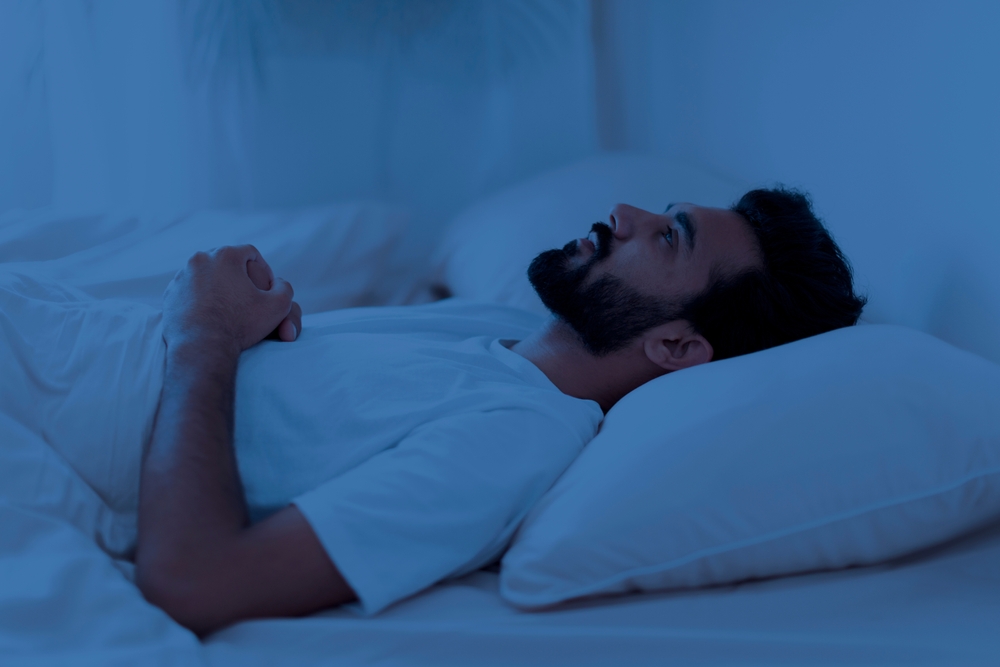Tinnitus, the medical term for ringing, buzzing, or whooshing sounds in one or both ears, affects millions of people across the United States. If you’re dealing with tinnitus, you’ve likely noticed that it tends to worsen at night when you’re trying to fall asleep. But why does this happen? Although tinnitus is not a real external sound but rather a symptom of underlying health issues like hearing loss, understanding why the condition intensifies at night can offer some clarity—and even relief.
Let’s explore the reasons behind nighttime tinnitus and what you can do to alleviate its effects.
What is tinnitus?
Tinnitus is often misunderstood because it’s a sound that no one else can hear, despite how loud or intrusive it may seem to you. While it might sound like a high-pitched whistle, ringing, or even roaring, it’s not a real noise but a perception of sound in the absence of actual auditory input.
Tinnitus itself is not a disease but a symptom of other conditions, most commonly hearing loss. For many, tinnitus is one of the earliest signs of hearing damage, even if they aren’t aware of any hearing problems. In fact, it often serves as an alarm bell, warning you that your hearing is declining. Over time, this phantom noise becomes more noticeable and persistent.
What causes tinnitus?
Tinnitus remains one of the more complex and poorly understood conditions in the medical world. Several factors can contribute to it, such as:
- Damage to Inner Ear Hair Cells: Your inner ear contains tiny, sensitive hair cells that move in response to sound vibrations, which are then translated into electrical signals that the brain interprets as recognizable sounds. When these hair cells are damaged, they send faulty signals to the brain, leading to the perception of tinnitus.
- Hearing Loss: Many cases of tinnitus are linked to hearing loss, particularly age-related hearing loss or damage caused by prolonged exposure to loud sounds.
- Brain Compensation: A leading theory suggests that tinnitus is the brain’s way of compensating for a lack of sound input. When it receives fewer signals from damaged inner ear cells, the brain tries to make up for the silence by generating its own “phantom” sounds. This theory explains why tinnitus can be caused by a range of conditions that affect the ear, from minor infections to more severe injuries or age-related deterioration.
Why does tinnitus get worse at night?
During the day, you are surrounded by a wide range of background noises, even if they are subtle or unnoticeable. The faint hum of traffic, conversations, and even your own voice can provide enough sound input to keep your tinnitus in check. However, when you lie down to sleep in a quiet room, all external sounds disappear, and your brain—deprived of auditory input—becomes hyper-aware of the tinnitus.
In the absence of real sound, your brain amplifies the phantom noises of tinnitus. This phenomenon can be likened to sensory deprivation; just as some people experience visual hallucinations when deprived of visual stimuli, your brain may “fill in” the silence with sound when there is none. This heightened awareness of tinnitus can make falling asleep particularly difficult for those affected by the condition.
Managing tinnitus at night
Fortunately, there are several strategies you can try to reduce the severity of tinnitus during nighttime:
- Introduce Background Noise: Sometimes, the simple solution is to add some gentle noise to the environment. A fan, for instance, produces a steady hum that can help mask the ringing in your ears. If you prefer something more tailored to your needs, there are white noise machines designed specifically for tinnitus sufferers. These devices produce calming sounds, such as rain, ocean waves, or soft wind, which can soothe the brain and distract from the ringing without keeping you awake.
- Use Sound Apps: Smartphone apps can also help by playing ambient noises or soothing music. These apps often come with a variety of soundscapes you can customize to suit your preferences and can be a useful tool to combat nighttime tinnitus.
Other factors that can worsen tinnitus
While silence is one of the biggest contributors to worsening tinnitus at night, other factors can make the condition more noticeable or bothersome, including:
- Alcohol: Drinking alcohol before bed can increase blood flow to the inner ear, potentially exacerbating tinnitus symptoms. Cutting back on alcohol, especially before bedtime, may help alleviate this.
- Stress: Stress and anxiety can intensify the perception of tinnitus. If you’ve had a particularly stressful day, your tinnitus may seem louder when you try to relax at night. Finding ways to reduce stress, such as through relaxation techniques or meditation, may help ease your symptoms.
- Underlying Medical Conditions: Conditions like high blood pressure or ear infections can also lead to a flare-up in tinnitus symptoms. If your tinnitus is persistent, worsening, or accompanied by other symptoms like dizziness, it’s important to consult a healthcare provider to explore potential treatments.
When to see a specialist
If your tinnitus is keeping you awake at night or affecting your quality of life, it may be time to find an expert near you. A specialist can help you identify the underlying cause of your tinnitus and recommend appropriate treatments.
Whether it’s through hearing aids, sound therapy, or lifestyle changes, there are effective ways to manage tinnitus and minimize its impact on your day-to-day life.
